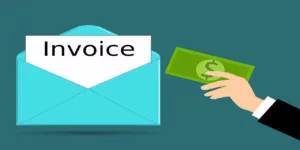Invoicing should be a simple process, but for small businesses, trying to collect on accounts can represent a significant challenge. Clients ignore the invoices, or they get lost in the shuffle, leaving companies scrambling to pay their bills. One solution: polish up your invoice. It may seem superficial, but adding a professional logo and branding can improve your business’s cash flow.
Here’s what a great invoice brings to the table and how you can improve yours:
Setting The Terms
When you send out an invoice, your primary goal is, of course, to collect your payment based on the terms set out in the original contract. The problem is that if those terms aren’t reiterated on the final invoice, clients are prone to ignoring them. With that in mind, every invoice should include contact information, a due date, and information on how the invoice can be paid. It also helps to include an invoice number and issue date – all information that can help you track its progress and hold clients accountable.
One way to ensure that you don’t miss any of these details when preparing an invoice is by using a standard invoice template, like these invoices designed by Freshbooks. The goal should be to have a basic framework in place so that you can just fill in the blanks when it’s time to issue an invoice so that none of the details ever get forgotten.
Enhance Your Automation Process
More and more businesses are automating their invoicing and payment procedures, but even if you’re not ready to upgrade to a payment portal or similar software, redesigning your invoices can be helpful. For example, digital invoices can link directly to your chosen payment interface, so that clients can simply click on the link and pay their bill. You can also link your emails with an automated reminder message so that clients are prompted to pay their bills on time. You set the schedule and they receive a message, with no fuss on your end.
Protect Your Legal Rights
Invoices are designed to be paid and filed away, but things don’t always go that smoothly, and when a client falls far behind schedule, sometimes the only solution is to take legal action. That might mean sending your client to collections and you’ll need proper documentation in order to do that. Alternatively, you may end up taking your client to court to pursue payment, and your invoices will serve as evidence that you are owed money, how much you’re owed, and that you pursued all proper avenues prior to taking legal action.
In addition to serving as legal proof of what you’re owed by clients, a thorough invoice is your best defense if you’re subjected to an audit. You’re more likely to lose out in an audit – or at least be held in a state of extended suspension – if your invoices aren’t organized. Conversely, if you have a clear file of ordered invoices showing charges and payments, you’ll be able to quickly smooth over any concerns and prove that your business’s operations are above board.
Developing a professional invoice should be common sense, yet so many of these documents are dull and amateurish. Whereas a great invoice builds your brand, a shoddy one diminishes it. Which invoicing approach will you choose?








